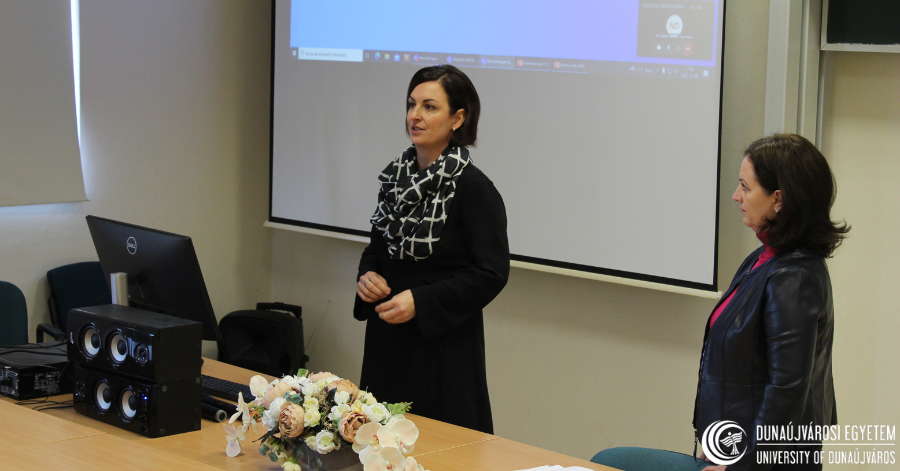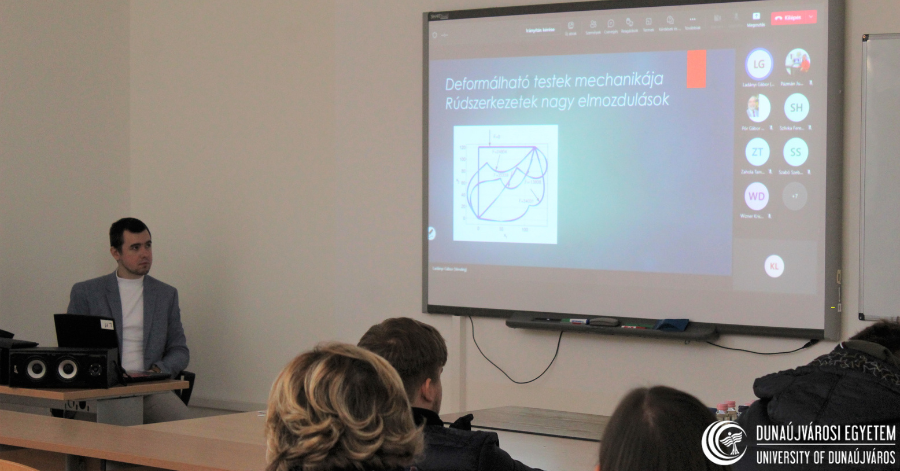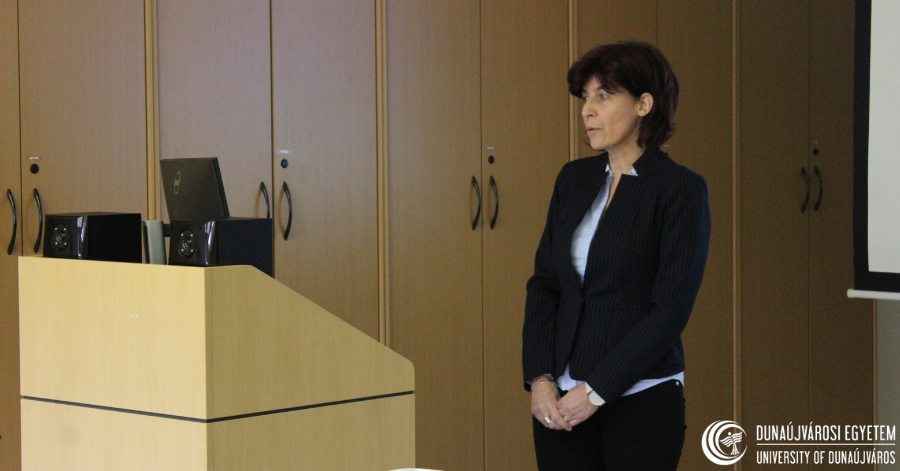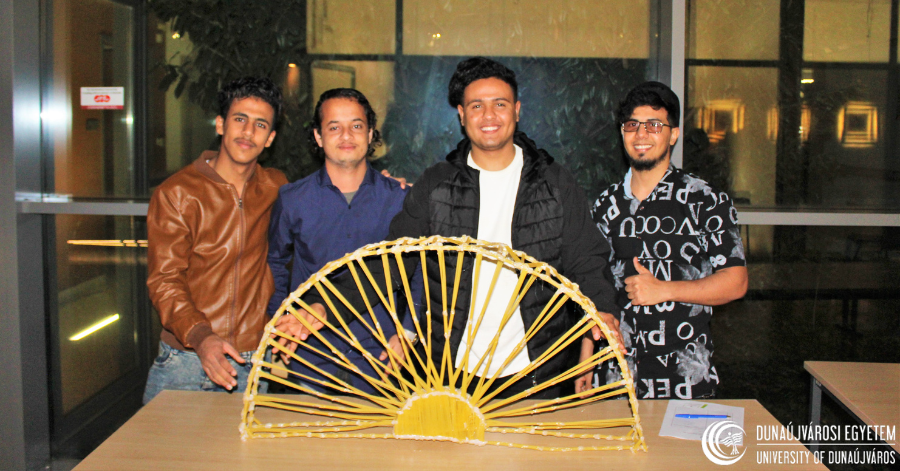Tuesday saw the continuation of the University of Dunaújváros Science Week, a summary of which can be found below.
The second day was dedicated to the Institutional Conferences.
Starting at 9 am, the University of Dunaújváros and the Hungarian National Bank, in the framework of the "University Network for Sustainable Development" Horizontal Programme, organised an international conference entitled "Renewable Economics". Krisztina Sitku, assistant lecturer, presented that the European higher education governance reforms of the last two decades have been motivated by the increased accountability of universities to their stakeholders, while the need to demonstrate their contribution to social development and to capture their regional innovation impact are still valid higher education policy and funding expectations at national and European level.

Krisztina Sitku assistant lecturer gave a presentation in English to the students
The presentations of the Mechanical Engineering and Materials Science Section of the Institute of Technology covered topics such as what CIVA modelling is good for, the Wrecking Laboratory, Non-Destructive Testing Laboratory, Machine Shop and Welding Base, and the question of how to raise interest in physics among secondary school students.

College senior lecturer Gábor Ladányi gave an online presentation titled "The sub-mechanics of quaternions in the mechanics of rigid and deformable bodies"
The Teacher Training Centre held a session on "Pedagogy for a secure future". Speakers presented how knowledge can be used in the labour market, research on the role and responsibilities of civil society in a changing educational environment, and interesting talks on social inequalities.

Presentation by Tünde Lantos Kindergarten teacher on "Learning frameworks used in the professional development of kindergarten teachers".
On Tuesday, the Institute of Informatics held its presentations online in the sessions "Optimal Models, Measurement Methods and Control Algorithms for Robotic Applications", "Cognitive InfoCommunications (CogInfoCom)" and "Mathematics". The main topics were electric vehicles and charging electric cars, but we also learned about what makes a smart home.
The day ended with the Pasta Bridge Building Competition. The traditional competition, held in the corridor of building "P", was open to teams of 2 to 3 people. The requirements for the bridges were the same as for the "bridge" or "truss" category of the World Championships, which in brief are: max. weight 1 kg, span 1 m, max. height 0.5 m, max. width 0.1 m, use of shop-made dough and shop-made glue. The team with the bridge that can carry the highest load wins.

The winning team of foreign students with the bridge "Yemen".
Congratulations to the winners of the Pasta Bridge Building Competition!
The session presentations were implemented in the framework of the Thematic Programme of Excellence 2020 (2020-4.1.1-TKP2020).


